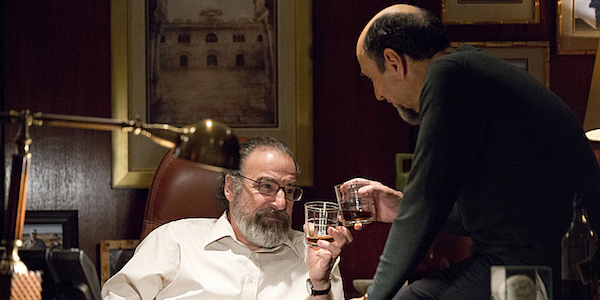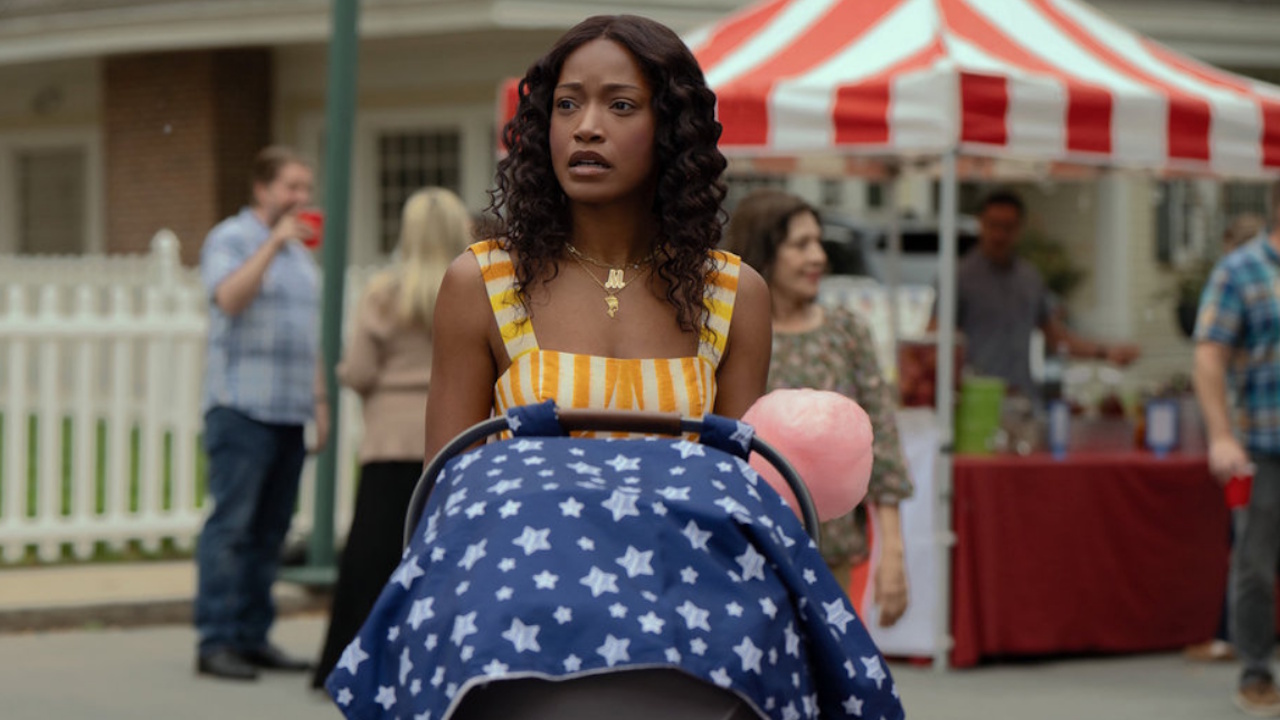Homeland Recap: Season 3, Episode 7 - 'Gerontion' Gives History a Face

Your Daily Blend of Entertainment News
You are now subscribed
Your newsletter sign-up was successful
After Homeland’s explosive sixth episode “Still Positive,” it may be easy to cast aside a more nuanced one like Sunday night’s “Gerontion.” And — forgive me, I’m a former English major — through its seemingly innocuous look at events following Javadi’s arrival in the United States, a definition of roles was exactingly unfurled. And in “Gerontion,” the Showtime series is doing some of its best work (no wonder it got renewed). Honestly, this might be my favorite episode of the season to date, because the drama is ALL in the words both said and unsaid.
The title of the episode, as previously mentioned, comes from the 1920 poem of the same name by T.S. Eliot, a kooky American expat with a major thing for cats. In it, an old man waxes nostalgically — and unreliably yet idealistically, proving that he is mostly all talk — on his own history, ultimately creating a cozy little world for Saul Berenson and his still-so-secretive backstory to morph into something else. Something useful for him.
After all, Saul is at the crux of his season-long career gamble thus far: he’s letting Javadi return to Iran, hopefully as a spy for the other side. Saul’s side. Because Saul and Javadi have a history, you see. But sometimes not even history can keep a house from falling down.
And history looks more and more to be the culprit: the one thing that will ultimately bite Saul in the ass. Because truth is never found in history, but rather nature and the acute existence of things. In “Gerontion,” ours is "an old man in a draughty house," and this "house" has corridors, passages, drafty holes, and issues. All rarely seen until it’s too late.
“Gerontion” (the poem)’s history is embodied in Mira Berenson. So often spoken to as a “she” by Eliot, the old man’s history is his ultimate blind spot, because he’s been too busy running around with a “cutlass,” never once taking into account alternative views. And it’s been Mira running with him all these years. Read these lines and imagine them as a description of Mira: “Think now / She gives when our attention is distracted / And what she gives, gives with such supple confusions / That the giving famishes the craving. Gives too late / What’s not believed in, or if still believed, / In memory only, reconsidered passion.” Works, right?
In Saul’s eyes, Mira is infallible, even though she’s proven time and time again to cause him grief and madness. Just like history, Mira constantly deceives and plays with Saul while he sits willingly unaware of her misdeeds. (To say nothing of her vague cover stories when she is away.) Who’s to say she hasn’t been deceiving him since their days in Iran when they were friends with Javadi?
Which brings us back to the story of Homeland as a whole. A lot of its earliest questions point to such an answer. Who’s been there from the beginning? Who was oh-so-conveniently away when everything went down at the CIA? Who just agreed to stay with a man she no clearly longer loves? Mira. To say nothing of their shared history — something that seems to be all-the-more entwined with that which is at the center of Homeland’s doings. And the incredulousness with which Javadi emphasized not once, but twice, the idea of being “beaten by a girl” also leads me to believe that a girl (Mira Berenson) will be Saul’s downfall, but not the obvious one (Carrie Mathison). Ooh doubletalk!
Your Daily Blend of Entertainment News
As for “Christ the tiger”? Well that is undoubtedly Quinn. Thoughts of his true involvement in Homeland have always been rife with speculation: he’s someone who’s been employed by Estes (to murder Brody) and Dar Adal (from the beginning, we’ve now discovered) and forced upon Saul. He’s proven to be an incredible hothead, but also able to use that as a manipulation tactic, leaving us without a proper conclusion on who or what he really is in the grand scheme of things.
So, too, is the curiosity behind the Christ tiger. “Signs are taken for wonders. ‘We would see a sign’: / The word within a word, unable to speak a word, / Swaddled with darkness. In the juvescence of the year / Came Christ the tiger.” Quinn is sick and tired of the crimes he’s committed in the name of some greater good he feels he’s yet to see. And from this realization comes a bit of seeming honesty: he admits that he isn’t sure he believes “that anything justifies the damage we do.” Is this the first time we’ve gotten a glimpse inside Quinn’s honest-to-goodness mind?
“The tiger springs in the new year. Us he devours. … I have not made this show purposelessly.” John “Paul Quinn” (not his real name): secret black ops murderer of bad guys. And also maybe a catty pariah.
Clearly, the culprit has always been at home. This is a show about home turf, home wars, and what’s happening at home — in the bigger, United States sense, and also in the smaller, more intimate character-by-character sense. So it would be logical that the biggest potential (and also metaphorical) bomb would be at home, in Mira, and Quinn, and Dar, and Carrie. This home is a drafty one.
